2014-15: Fiscal year brings Rs231b in new taxes
Govt scraps Rs103b tax exemptions to broaden revenue base.
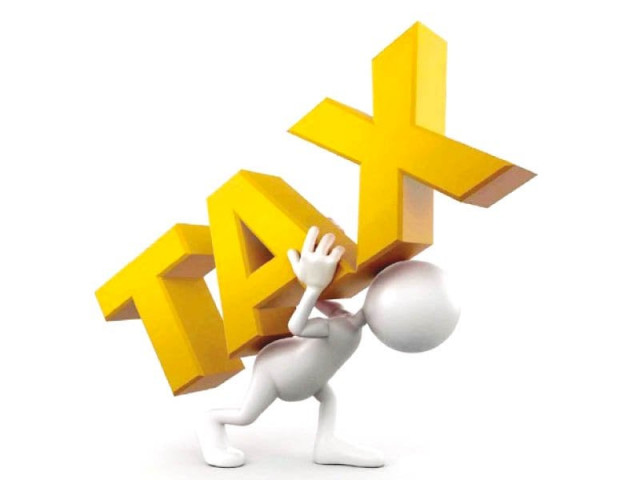
Govt scraps Rs103b tax exemptions to broaden revenue base. CREATIVE COMMONS
In its second budget announced on Tuesday, the federal government slapped fresh taxes of Rs231 billion with income tax getting a major share of 62% and withdrew sales tax exemptions worth Rs103 billion in a bid to expand the tax base and reduce the benefits enjoyed by the affluent.
The new tax-generating measures constitute 0.8% of the projected size of national economy in fiscal year 2014-15, with the hope that tax-to-gross domestic product ratio will rise to a decent 9.7%.

In a tilt towards the wealthy, the government has given a huge relief to stock brokers by keeping capital gains tax on sale of shares at reduced levels.
Under the guise of attracting foreign direct investment, an amnesty scheme has been announced for industrialists desiring to set up new companies. Corporate tax for the manufacturing, construction and housing sectors will come down drastically to 20% from the standard 33%.
The standard corporate income tax has been cut to 33% from 34%. It has also abolished income support levy. Income tax on functions and marriages has been reduced to 5% from 10%.
A significant development is the decision to withdraw Rs103 billion worth of tax exemptions the affluent people have been enjoying for years.
In the hope of encouraging documentation of the economy, tax liabilities for unregistered persons have been increased through electricity and gas bills, cash withdrawal and purchase of property. In this regard, the government seeks to receive Rs108 billion.
As a result of the new measures, the share of direct taxes in total taxes would go up, said Finance Minister Ishaq Dar in his budget speech.
He vowed that the tax measures would target those who were outside the tax net. Non-compliant taxpayers, who either do not pay tax or file returns, would have to bear the cost as the cost of doing business was being increased for them, he said.

The government is expected to raise Rs144 billion through new income tax measures including withdrawal of Rs36 billion worth of exemptions.
An amount of Rs51 billion will be collected through different sales tax measures including withdrawal of Rs35 billion worth of exemptions.
Apart from these, Rs36 billion will be collected in customs duties including scrapping Rs32 billion worth of exemptions.
Income tax
In order to bring into tax net the real estate transactions, an adjustable 1% advance tax will be collected on purchase of immovable property from taxpayers and 2% from non-compliant people.
However, properties valuing less than Rs2 million and schemes introduced by the government for expatriate Pakistanis will be excluded.
On domestic electricity consumers, an advance tax has been slapped at the rate of 7.5% on monthly bills above Rs100,000.

It has proposed a tax on those who do not file income tax returns on certain transactions at the rate of 5% on dividend income and 5% on interest income above Rs500,000. Withholding tax on cash withdrawals has been increased to 0.5% for people who are not taxpayers.
On sale of property, advance capital gains tax has been increased from 0.5% to 1%.
It has been proposed that tax at the same rate be collected by the manufacturers of motor vehicles as is prescribed for registration of new locally manufactured private motor vehicles. A 10% withholding tax has been slapped on purchase of locally assembled or imported vehicles.
Sales tax and federal excise
For discouraging fake tax claims, input tax adjustment is proposed to be restricted only to goods and services used in taxable manufacturing and sales.
Federal excise duty on cigarettes is proposed to be enhanced. The duty on the cement sector is being replaced from Rs400 per ton with 5% of retail price.

Federal excise duty on chartered flights is being proposed at the standard rate on the full amount charged.
A further tax at the rate of 1% has been slapped on supplies made to unregistered persons and is specifically excluded from the purview of output tax.
The government has withdrawn sales tax exemption available under SRO 575 and slapped 5% tax on machinery for cold chains, call centres, plants, etc. It has slapped 17% sales tax on import of machinery for hotels, services sector, wholesale and air handling units.
Similarly, tax exemption on import of machinery has been withdrawn and 5% sales tax has been imposed except on machinery import for the textile sector.
The government has introduced zero rating on certain goods including crude oil, certain raw materials for export-oriented sectors, etc.
It has levied 5% tax on soyabean meal, oil cake and directly reduced iron. Sales tax rate on rapeseed, sunflower seed and canola seed has been increased from 14% to 17%.
It has extended zero rating facility for dairy and stationery industry and input material of these industries. It has slapped 17% sales tax on imported goods of textile, surgical, leather, carpet and sports industries. Sales tax has also been imposed on mobile phones.
A 10% excise duty on motor vehicles exceeding 1,800cc has been withdrawn. Sales tax on tractors has come down from 17% to 10%.
Customs duties
In order to encourage industrialisation and promote fruit cultivation, plant, machinery and equipment imported for setting up fruit processing and preservation units in Gilgit-Baltistan, Balochistan and Malakand Division are being exempted from customs duties.
Maximum general tariff of 30% has been reduced to 25%. Exemption from duty and taxes for hybrid electric vehicles has been rationalised. Vehicles up to 1,800cc will get 50% duty and tax exemption and those above 1,800cc will receive 25% exemption.
The government has slapped 1% customs duty on hundreds of items, which were earlier charged at 0%. The duty on networking equipment was raised from 5% to 10%. Used imported vehicles have become more expensive and duty and taxes have been increased by 10%.
Customs duty on flat-rolled products of alloy steel has been increased from 0 and 5% to 10% to bring them on a par with flat-rolled products of non-alloy steel. It slapped 5% duty on import of generators above 1100 KVA.
Published in The Express Tribune, June 4th, 2014.
Like Business on Facebook, follow @TribuneBiz on Twitter to stay informed and join in the conversation.

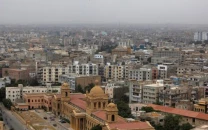



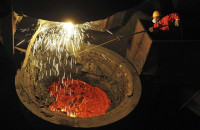


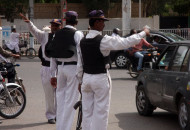

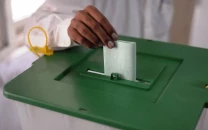








COMMENTS
Comments are moderated and generally will be posted if they are on-topic and not abusive.
For more information, please see our Comments FAQ